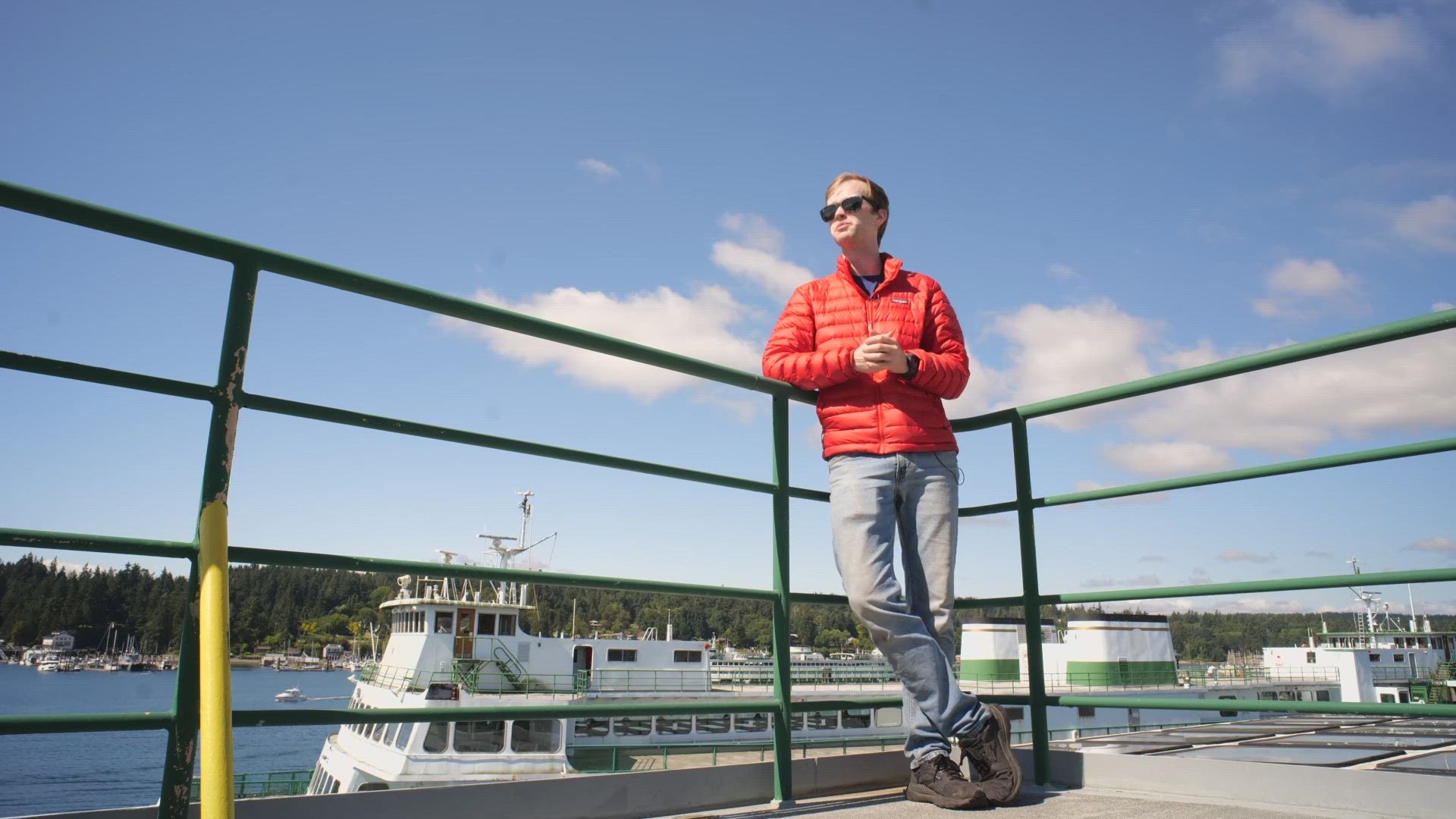SEATTLE — Washington State Ferries Captain Harlow Wood looks ahead as he guides hundreds of passengers from Seattle to Bainbridge Island.
Wood looks down at the radar and then calls out directions to his second mate.
"A lot of people ask isn't that job boring? No. Every crossing’s different," Wood said.
A career mariner, Wood’s been a captain for Washington State Ferries for six years. However, he’s worked for WSF for a total of 14 years.
"Being a point guard, quarterback or free safety where you have to take in a lot of inputs and make a decision. That's what this job is," Wood explained.
However, Wood has watched as the interest in positions like his have declined. He said decades ago it was an extremely competitive field, but as more industries developed, many followed different career paths.
WSF faces an aging workforce. There were 53 retirements in just the last year, according to Washington State Ferries.
For years, WSF has been attempting to increase its staffing.
"We're being creative with the way we can keep our employees and train them faster to get the license they need," Washington State Ferries spokesman Dana Warr said.
That includes adding accelerated programs.
"It will look just like this. He'll be on one radar, and I’ll be on the other one," Wood explained while being shadowed by apprentice mate Garrett Meyers.
Meyers’ program speeds up the process of becoming a licensed crew member. Right now, he’s in the mandatory process of 360 days of shadow training.
"The program I’m in is really fast-paced,” Meyers said. “It’s two years whereas every other program is going to be four years.”
He started last spring and anticipates by spring of 2025 he’ll be eligible to work as a mate.
Wood said there’s really no politics involved. If you put in the time, you can work your way up to a captain. However, that typically takes about a decade.
"We have the most precious cargo that exists: People," Wood said.
The number of riders has returned to pre-pandemic times. One Saturday this month brought the most riders in a single day since the summer of 2019.
A ferry like Wenatchee requires a team of 15 to leave the dock. That includes licensed deck officers, seamen, engineers and oilers.
"If something happens, life happens. We can't sail," Warr said.
The staffing shortages and ship shortages have led to downsized routes this summer.
Despite hiring hundreds of workers in the last two years, enough staff has retired or left for other jobs to eliminate much of that progress.
It means WSF is looking for more people like Meyers.
"I fully intend to be out here for the rest of my career. I'm hoping for a good 30 years," Meyers said.
He’s hoping to have a career like Captain Wood to help keep this much-needed form of transportation alive.

